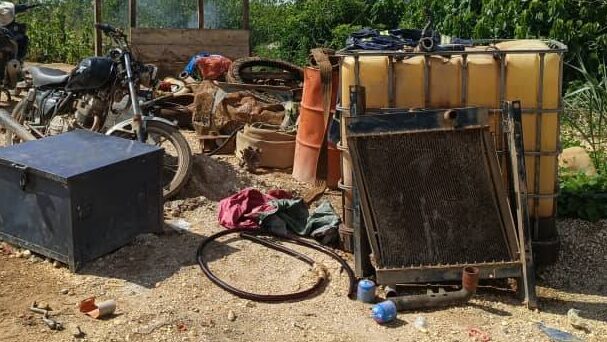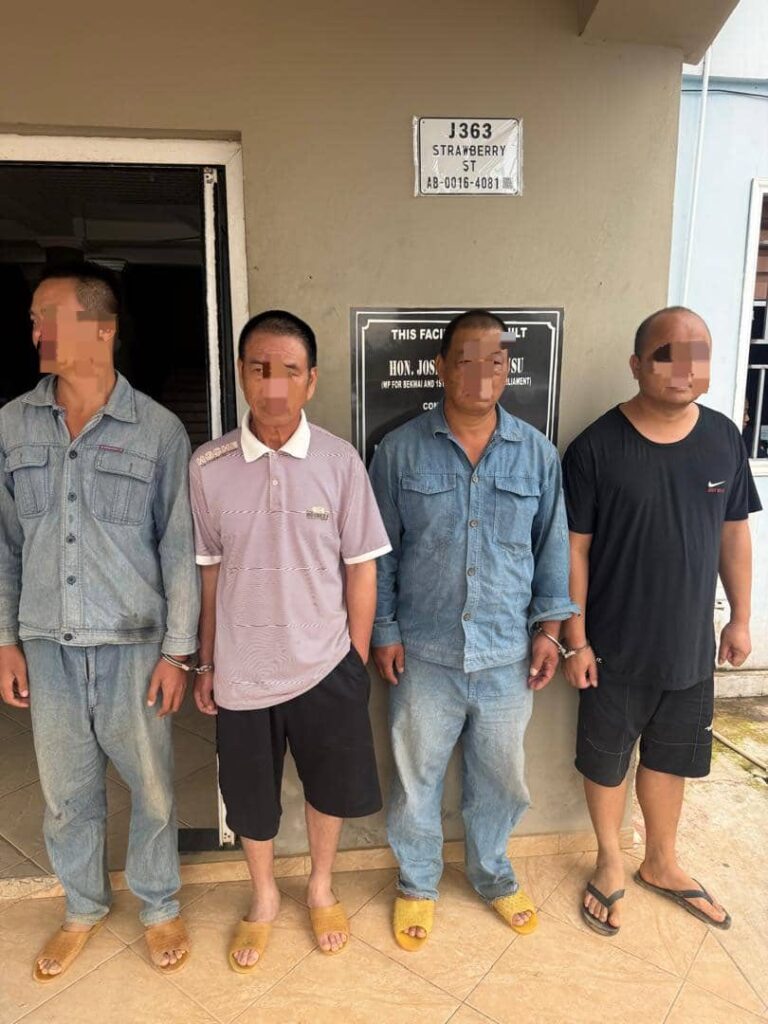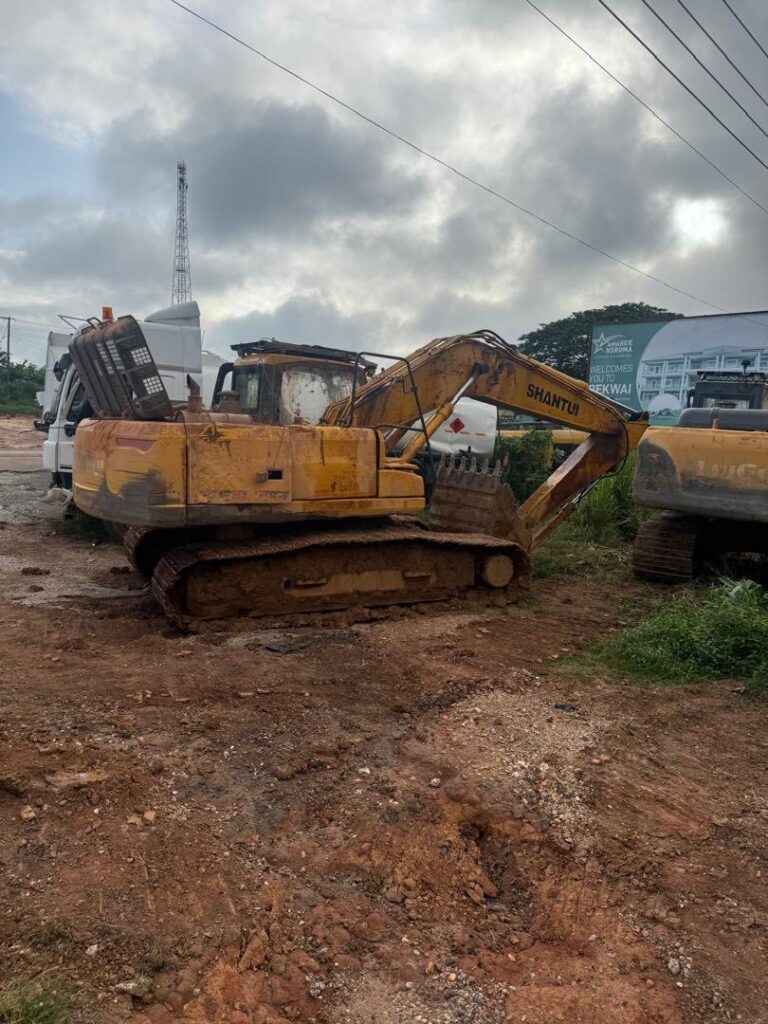A renewed crackdown on galamsey in Ghana has led to the arrest of twelve individuals across two districts in the Ashanti Region, as part of intensified efforts to clamp down on the environmentally destructive practice.
The Ghana Police Service confirmed that the operations were conducted by Special Anti-Galamsey task forces in Amansie South and Adansi Asokwa.
In the first operation, carried out in the Apremadi community of Amansie South, police revealed that eight individuals were apprehended while in the act of engaging in illegal mining activities.
The operation, driven by intelligence reports, targeted areas notorious for unlicensed mining.
“Eight (8) persons were arrested while actively engaging in illegal mining activities. The suspects have been identified as: Karim Issaka (38), Samuel Dugah (35), Seidu Karim (35), Issaka Azitarigah (24), Boadu Desmond, (29), James Kabutey (21), Bashiru Idrissu (19), and Collins Amoako (24).”
Ghana Police Service

Police stated that multiple mining-related devices were seized during the operation, including three excavator monitors, four excavator control boards, and three gear levers.
Authorities also indicated that arrangements are being made to transport the excavators from the mining site.
All eight suspects are currently in police custody and, per the police update, are “assisting with the investigation, while the seized exhibit has been retained.”
Chinese Nationals Nabbed In Second Galamsey Operation
Furthermore, the police stated that a separate but synchronized operation was carried out in Atatam, a community situated in the Adansi Asokwa District of the Ashanti Region.
This effort was spearheaded through a joint initiative by the Ashanti South Regional Police Command and the CEO of the Minerals Development Fund, Dr. Hanna Bisiw, along with her team.
The authorities confirmed that the operation led to the arrest of four Chinese nationals suspected of involvement in illegal mining activities in the area.
These Chinese nationals were identified as Li Quan, 44; Lu Jianzheng, 36; Li Xuyu, 47; and Su Shanxing, 63.
These individuals were allegedly involved in unauthorized mining practices that have increasingly threatened the ecological balance and water safety in the region.

“The operation targeted illegal mining sites along the Subin River and Jimi River, both of which serve as crucial sources of drinking water for adjoining communities.”
Ghana Police Service
During the course of the raid, law enforcement officers seized seven excavators believed to have been used in the mining activities.“Three (3) pump-action guns were also retrieved from the suspects.”
Officials stated that the four individuals taken into custody remain in detention and are actively cooperating with law enforcement as the investigation continues.
The Ghana Police Service emphasized that these latest arrests form part of a broader initiative to protect the country’s natural resources and restore environmental integrity, particularly in areas affected by illegal mining.

The coordinated nature of these operations—combining police intelligence, inter-agency collaboration, and support from regulatory bodies like the Minerals Development Fund—signals a significant shift in how the state is approaching the galamsey menace.
The growing involvement of foreign nationals, particularly Chinese, in Ghana’s illegal mining economy has continued to stir public debate and fuel demands for tougher immigration and mining law enforcement.
Government agencies have often faced criticism for perceived inaction or weak enforcement, especially when foreign operators are involved.
By carrying out these high-profile arrests and equipment seizures, the Ghana Police Service appears to be sending a strong message that illegal mining will no longer be tolerated—regardless of who is behind it.
More operations are expected in the coming weeks as security agencies intensify their campaign to dismantle illegal mining networks and reclaim degraded land across Ghana.
Officials have reiterated that the ultimate goal is to safeguard water sources, protect farmlands, and uphold the rule of law in mining activities.
As both operations demonstrate, the consequences of galamsey extend far beyond economic concerns—they threaten public health, environmental stability, and national sovereignty.
With public attention now squarely focused on the issue, the government faces mounting pressure to ensure that the momentum generated by these arrests does not wane.
READ ALSO: Dr. George Elombi Appointed President of Afreximbank























